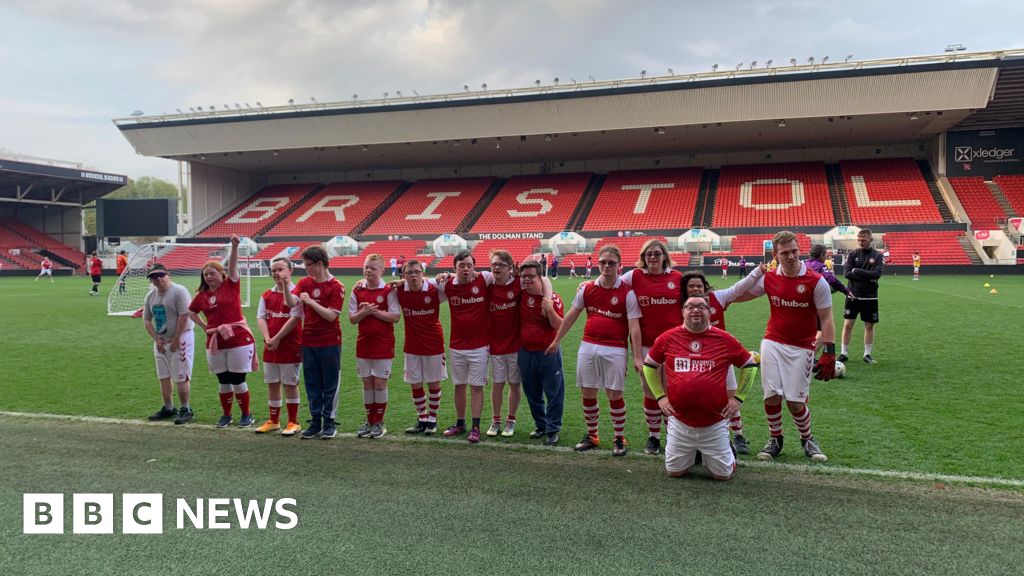Image source, Bristol Down’s Syndrome Football Club
- Author, Rachel Candlin
- Role, BBC News, West of England
The head coach of a football club for children and adults with Down’s syndrome said teaching the group has made him much better at his job.
The Bristol Down’s Syndrome Football Club runs weekly sessions and plays friendly fixtures and tournaments against other teams across the country.
The club celebrates its 10th anniversary this year and some of the current crop of 30 players have been attending since its foundation in 2014.
“On a personal level,” said head coach Mark Kearns. “I’ve had to adapt, I’ve had to learn how to communicate with people differently, explain things differently.
“It’s made me a much better football coach.
“It’s something I would say to anybody who wants to get into football coaching; do a disability session.”
Image source, Bristol Down’s Syndrome Football Club
The club is run principally by volunteers and supported by Bristol City Robins Foundation, the official charity of Bristol City Football Club, which provides players with the team’s kit, as well as match tickets.
“It’s brilliant,” said Mr Kearns, “Our players love it.
“The matches are an opportunity for them to shout and cheer and be loud and boisterous.
“It’s a chance to let their hair down.”
Nino, one of the players, said Sunday morning football with his team was “the best”.
“I love training with friends, it’s good for my health to keep fit & work as a team, the coaches are great and we all have good times” he added.
‘Universal game’
Sam Smith, another lead coach, said the activities he teaches are similar to any other football session but the difference is in how he delivers them.
“It may be we give a little bit more time, or space, or communicate more about the drills, although the content of what we offer is similar to pretty much any other setting,” he said.
“Football is a universal game and they all love it. They want the opportunity to play amongst their peers what they see on tv or in the stands.
“It’s the enthusiasm for the game and being part of a team.
“To see the celebrations when they score, or when they achieve something together, or the friendships they make, is a joy.”
Image source, Bristol Down’s Syndrome Football Club
The popularity of football clubs for children and adults with Down’s syndrome is growing, according to Mr Smith, whose sessions include players ranging in age from six to 42.
He said when the Bristol club was set up 10 years ago, it was unusual, but since then they have been able to establish regular friendly fixtures and tournaments across the UK, including in Swindon, Swansea and Birmingham.
“We still have players who started when the club began and we’ve seen them progress from coming in a bit unsure with the ball to tackling us and teaching us new skills.
“It’s a great joy to be able to give something back and provide opportunities for these players,” he added.

